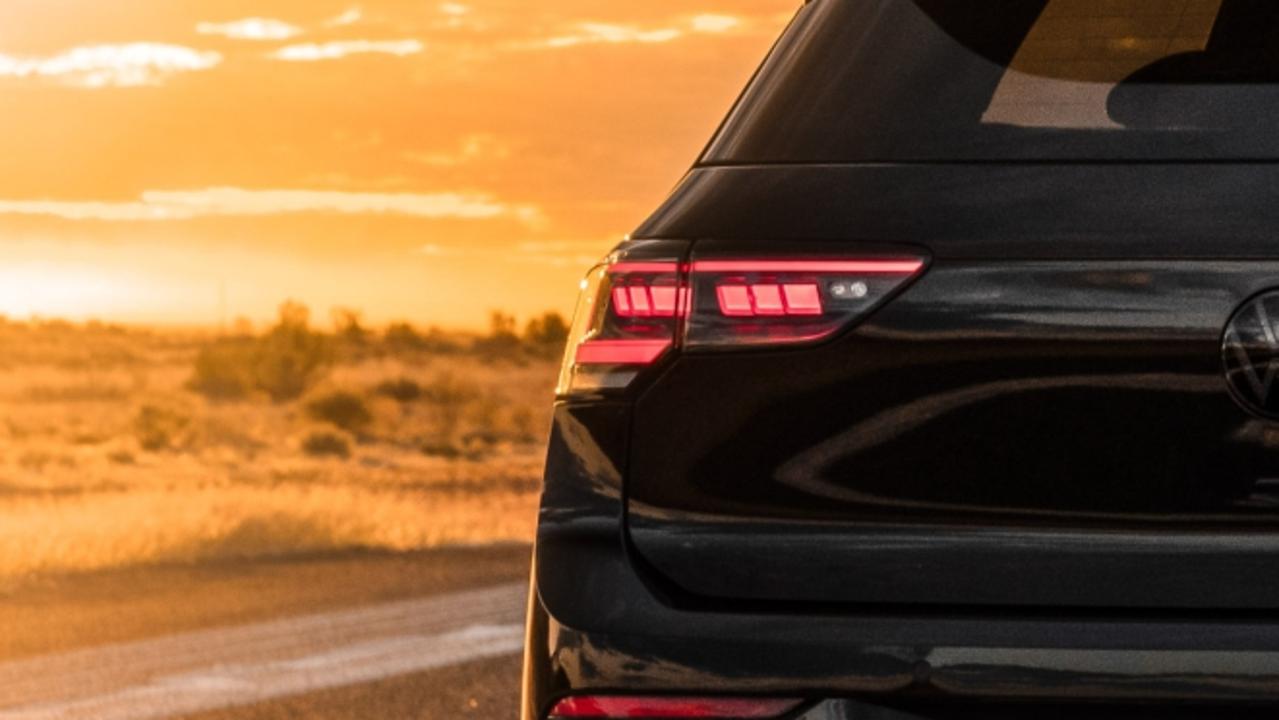New Ford Everest wagon review
This seven-seat wagon has a mountain of a task to tackle, even if it benefits from close links to the best ute in today’s showrooms.

Ford is hoping for big things from its new Everest large SUV.
The Ranger ute-based off-roader has been a slow burn but has gradually muscled in on the rough roads dominated by Toyota.
The arrival of the second-generation model is hoped to accelerate the trend.
“We think there’s definitely upside,” says Ford Australia president and chief executive Andrew Birkic of the new model.
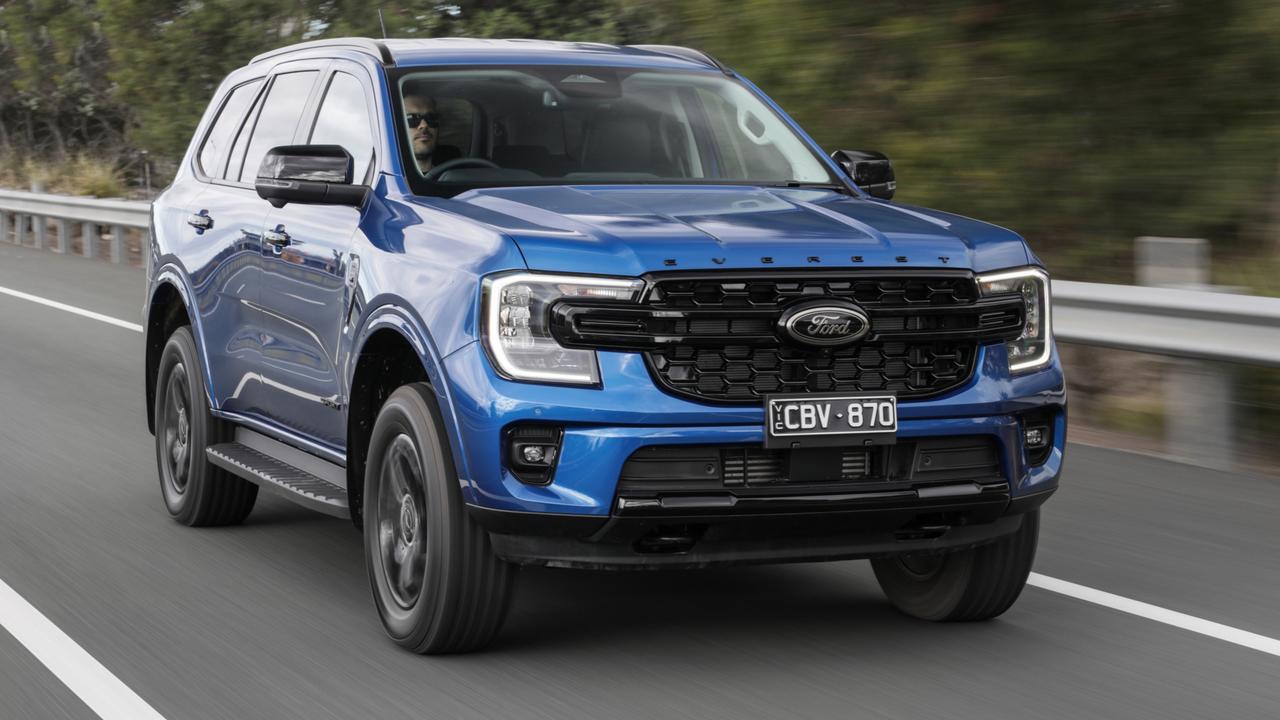
“We’d like to think that the premium approach … can challenge some of our rivals.”
Key to the new Everest sales pitch is an equal-best-in-class 3.5-tonne tow capacity and new 3.0-litre V6 turbo diesel, the latter available on the two most expensive variants, Sport (about $75,000 drive-away) and Platinum ($84,000).
Value-focused Ambiente ($58,000) and Trend ($66,000) models are powered by a revised 2.0-litre four-cylinder twin-turbo diesel. It delivers 154kW and 500Nm and is mated to a 10-speed auto for relaxed, smooth acceleration. A four-wheel drive system adds $5000.
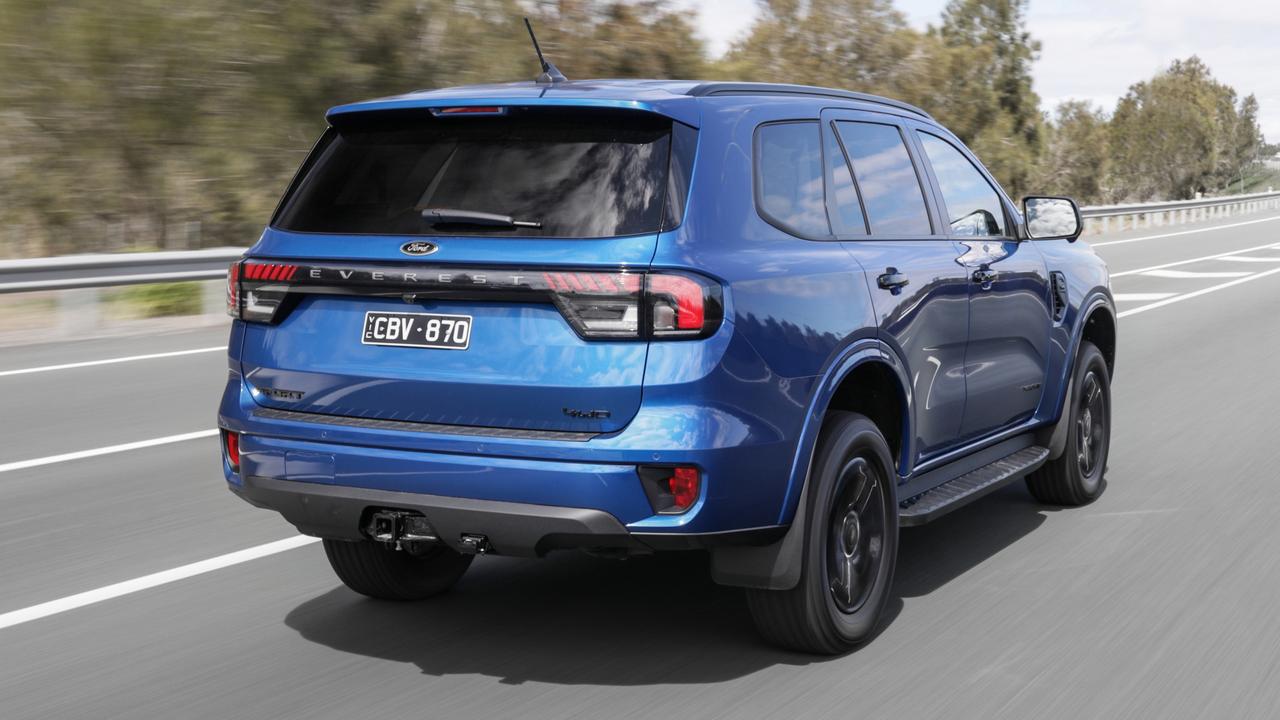
The 184kW/600Nm V6 turbo diesel – also with a 10-speed – adds effortless low-rev acceleration and standard four-wheel drive. It’s also impressively refined and quiet, although fuel use is almost 20 per cent higher.
While its rugged, ute-based underpinnings and live axle rear suspension mean it lacks the agility and liveability of more on-road focused SUVs, it compares favourably with its competitors, the Toyota Prado, Isuzu D-Max and Mitsubishi Pajero Sport.

For a high-riding SUV it’s well controlled in the corners, with progressive steering and good bump absorption. Up the tempo and the front-end will push wide as physics have their say but it all unfolds in a predictable manner.
There’s added cornering crispness in the Platinum with its lower profile 21-inch tyres, although it comes at the expense of ride quality, as extra jiggling infiltrates the cabin. Those 21s are also not suited to rugged tracks, although Ford offers a no-cost-option off-road pack that swaps them for 18-inch all-terrain tyres.

Off-road is the Everest’s natural environment, at least for all but the cheapest two-wheel drive Ambiente and Trend models, which are aimed at buyers who tow caravans.
The bones of the Everest reflect an intensive local engineering effort.
In 4WD variants there’s proper off-road hardware for excellent traction over rocks and mud. Ground clearance keeps the underside away from terra firma and there’s a bash plate as back-up.
All have a full-size spare wheel, although the Ambiente gets a cheaper steel unit as part of its price focus.

The Ambiente also has a 10.1-inch infotainment screen instead of the 12-inch unit of the other three variants. It only seats five but is well equipped, with auto emergency braking in forward and reverse, blind-spot warning and wireless smartphone connection and charging. Across the range Ford has also sharpened the equipment list to leave clear air from the workhorse Ranger ute it shares hardware with.
The step up to the Trend brings that vast 12-inch screen, leather seats, a powered tailgate and a third row of seats.
The V6-only Sport gets black design highlights and heated and cooled electrically-adjustable front seats while the Platinum picks up quilted leather seats, a 360-degree camera, a panoramic sunroof and Bang & Olufsen audio.
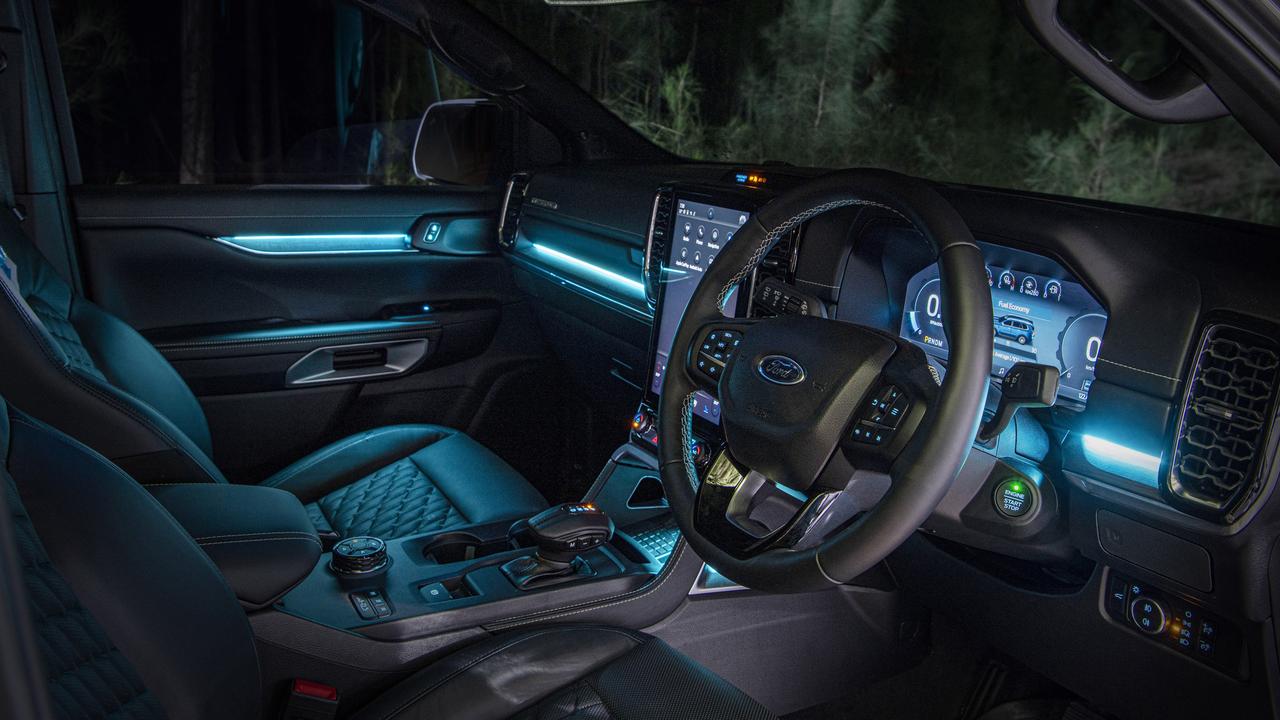
While it hasn’t chased the sales-dominating Prado for size – Ford believes the more compact dimensions could tempt some – there’s still decent space and child seat anchor points in the back two rows.
The middle seat is only OK for leg room and the high-ish seat base means taller folk will be grazing the roof, while a broad tunnel in the middle of the floor eats up the otherwise generous foot space. Vents in the roof blow air to rear passengers.
The third row is cosier but incorporates cupholders and vents in the roof.
As with so many other seven-seat SUVs boot space is limited once all seven seats have bums on them; best to keep luggage to a few soft bags.
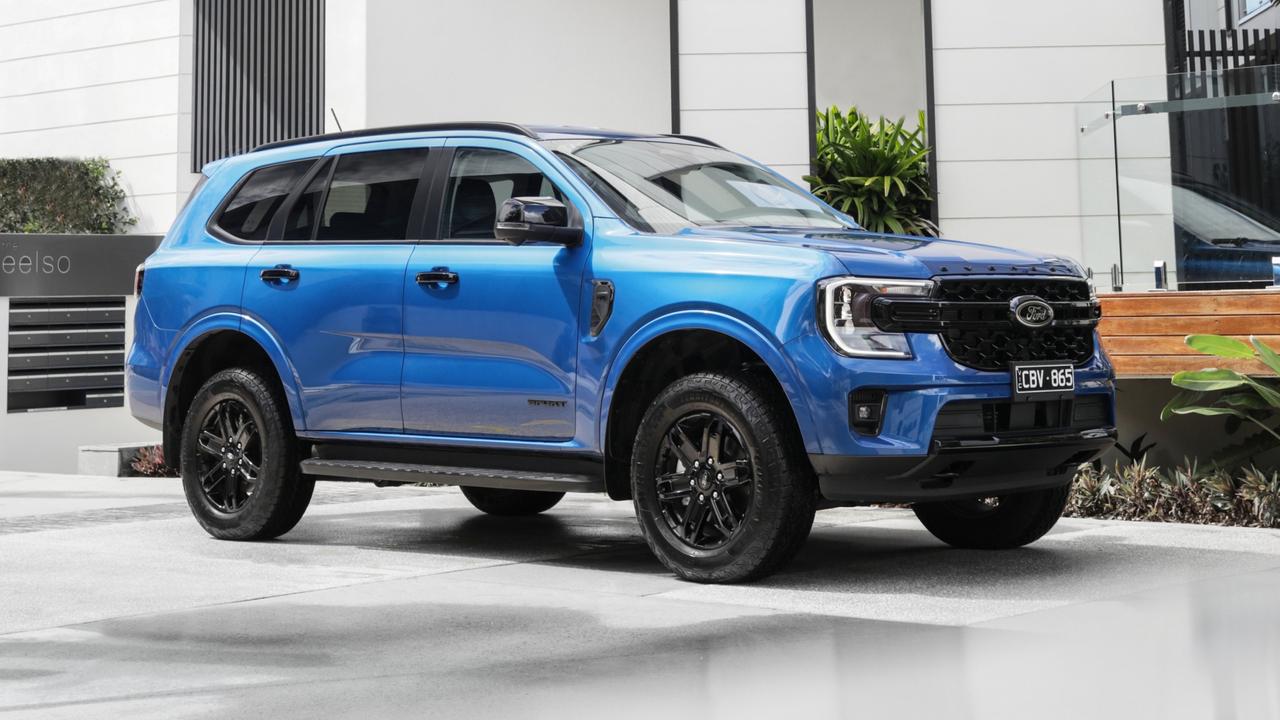
In all models, the cabin presentation feels premium, especially from the Trend up, where there are better quality materials.
It all adds up to an inviting option for those needing an accomplished off-roader and/or heavy duty tow machine. The addition of V6 propulsion, excellent refinement and solid dynamic ability cement the new Everest as a class act in its segment.
VERDICT
Second-generation SUV boosts refinement, comfort, composure and tow capacity while maintaining excellent off-road credentials.
Four stars
FORD EVEREST TREND
PRICE From about $66,000 drive-away
WARRANTY/SERVICING Five yrs/unl’td km, $1762.80 for five yrs
SAFETY Safety: 9 airbags, autonomous emergency braking, lane keep assist, rear auto braking, speed sign recognition, driver monitor
ENGINE 2.0-litre 4-cyl twin-turbo, 154kW/500Nm
THIRST 7.1L/100km
SPARE Full size
BOOT 259-898 litres



